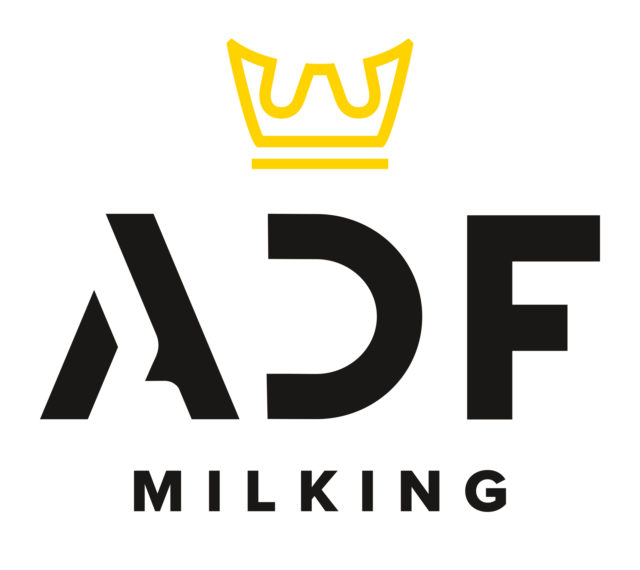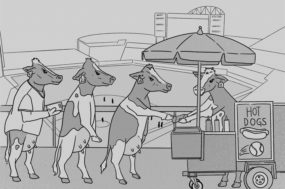It seems such a waste.” The mother said, “I’m not quite sure, let’s call Grandma.” The two got on the phone and called Grandma, who said, “I’m not quite sure, let’s call Great-Grandma.” They called Great-Grandma. She said, “When I got married I got a small roaster pan. As the family grew, the roaster pan was too small for the roast. I had to cut off the ends to make it fit into the pan.”
I can’t help wondering about the joyous roller-coaster ride of the Christmas season. Where did we get our Christmas traditions? Did some of our traditions come from a roaster pan that was too small for the roast?
Christmas trees sparkle all over the world as the centerpiece of Christmas. According to Wikipedia, the Christmas tree is a “Christianization of pagan tradition and ritual surrounding the winter solstice, which included the use of evergreen boughs ... Saint Boniface, who was a missionary in Germany, took an axe to an oak tree dedicated to Thor and pointed out a fir tree, which he stated was a more fitting object of reverence because it pointed to heaven and it had a triangular shape, which he said was symbolic of the Trinity.”
The nativity scene representing the birth of the Christ Child graces many mantles and tables at Christmas. According to World Book Encyclopedia, this tradition comes from Italy. On the day before Christmas, Italians fast. In the evening, the family gathers around the Presepio, or nativity scene. The family prays while the mother places the figure of the Babino, or Christ Child, in the manger. “Then gifts are distributed from a large crock called the Urn of Fate.” This tradition spread to Germany and the Germans brought it to America.
The tradition of hanging our stockings on the fireplace came from Great Britain, where children hung their stockings hoping to receive a gift from Father Christmas.
From Scandinavian countries come the Yule log, wassail and mistletoe. The Yule log was burned first by the Scandinavians who once a year burned a log in honor of their god Thor. When Scandinavians adopted Christianity, they changed the word Yule to mean Christmas. They had lively ceremonies around the Yule log. Unburned parts of the log were kept for igniting the fire the next Christmas.
The word wassail comes from the Saxon drinker’s greeting, “Wat haile,” which means “your health.” Wassail was heated and put in a bowl. Drinkers would walk through the streets singing Christmas songs in return for their drinks. Our modern tradition of Christmas caroling came from this tradition.
Mistletoe hangs above our doors at Christmastime. Children giggle and laugh when lovers kiss under the mistletoe. Lovers don’t know they are remembering a tradition of peace that began in Scandinavia and filtered down through the ages. In ancient times, mistletoe was considered the plant of peace. If enemies met under this parasitic green plant adorned with white berries during the battle, they declared a truce for the day.
Another wonderful part of Christmas is sheep. We know they come from the shepherds who watched their flocks by night. We see them in every nativity scene. Sheep are cute, soft, cuddly creatures. When we see little glass ornaments in the nativity scene, we seldom remember what sheep are like.
Being a cattleman’s daughter, we didn’t have too many sheep, but we knew about them. Sheep aren’t very smart. They are tag-along creatures. They follow the leaders wherever they go.
When I was child, my grandfather owned a ranch that had wonderful grazing land, but part of the range was plagued with cracks or fault lines in the ground. When it rained, these cracks in the earth would open unexpectedly. We were always careful to avoid that piece of ground whether it was raining or not. Many a cow and calf met their fate in those deep crevasses.
Once a sheepherder brought his band of sheep onto my grandfather’s ranch. My grandfather was a very generous man and didn’t worry about the sheep crossing his property, but he warned the sheepherder to avoid the area where the old lake used to be because there the cracks were the worst, especially in the rainy season.
The sheepherder imagined my grandfather was trying to keep his sheep off the best part of his rangeland, so he didn’t follow instructions. That day it started raining. There was a flash flood. The sheepherder and his dogs tried to round the sheep away from the cracks, but the sheep saw no danger. The first sheep fell into a crack and the rest of the band followed the leaders to their death at the bottom of one of those cracks. The sheepherder was devastated, but it was too late. Warnings had been ignored and harsh consequences had followed.
Isaiah compares humans to sheep in Isaiah 53:6 (KJV). He says, “All we like sheep have gone astray; we have turned every one to his own way.” As we examine the origins of our traditions, it is easy to see how much we are like sheep. We are often gullible and follow our leaders blindly.
The internet posts a commercial, and sales go up. A study states a certain diet is the best, suddenly the supermarket is flooded with items consumers need for that diet. Luxuries become necessities because we must keep up with the proverbial “Joneses.” When a judge says, “Take down the commandments,” down they come. When a judge says it’s OK for women to kill their unborn children, thousands follow down the primrose path, never suspecting the danger lurking at the end of the trail. God’s laws are abandoned in the quest to please a politically charged, sex-ravening public.
Americans are abandoning Christian traditions incrementally. It’s not that we intend to change everything. We like our traditions. We resent change, and we put up a fight if we recognize what’s happening; but most of the time, we allow things to be changed one piece at a time.
For example, originally wassail was made with ale, roasted apples, eggs, sugar, nutmeg, cloves and ginger. Somewhere along the line, the recipe got changed. The wassail I drink doesn’t have eggs and ale in it, and when we go caroling, we aren’t looking for a drink. A kiss under the mistletoe doesn’t even resemble a peace treaty or a truce, and that jolly man called Santa Claus has replaced Father Christmas.
Most of the time, traditions don’t change with an out-and-out rebellion. They change gradually as people ignore or fail to remember how things used to be done or even why they used to be done that way.
Parents raise their children expecting traditions to remain sacred, but when children marry, their spouses have grown up with different traditions. Gradually, traditions of the two families merge as husband and wife make compromises, and their children grow up with a set of new traditions. Traditions are ever evolving and changing. There are some traditions that should not change, for if they do, society as we know it will decay into the barbarianism our forefathers fought diligently to erase.
A wise man once said, “Hold fast to that which is good.” Recognize the goodness in Christian traditions and remind your children of them often by taking them to church, reading the Holy Scriptures, teaching them to pray and to walk in the ways of the Lord. Teach them the difference between sheep and eagles. Teach them that eagles build their nests high above the world and keep them safe by circling the home front and being alert to those sheep that want to walk in their own ways and lead the masses over the cliff to everlasting destruction.
Christmas will come and go. I wonder in the next generation how many of our traditions will remain. Paraphrasing Ronald Reagan, Christianity is only one generation away from extinction. It is not passed down in our blood to our children. It must be taught and linked in the chain of never-ending tradition.







